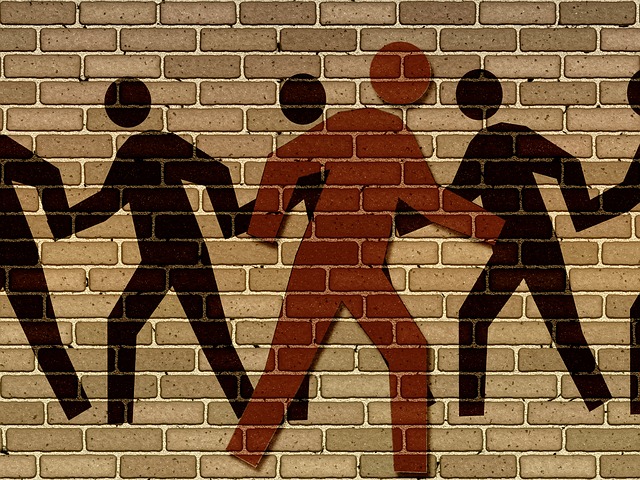
To Moshe He said, “Go up to Hashem – you, Aharon, Nadav and Avihu, and seventy of the elders of Israel, and you shall prostrate yourselves from a distance. Moshe alone shall approach Hashem…and the people shall not go up with him.”[2]
The directives are confusing, even contradictory. They are all told as a group to go up. And they do, as we are told later, “Moshe, Aharon, Nadav etc. ascended.”[3] Looking more carefully, however, we see that the original instruction did not just orient them in a direction – up. They were told how far to go, namely, all the way up – as far up as “to Hashem.” Immediately, that directive is withdrawn. They are told to prostrate themselves only from a distance. Moshe is the exception. But his special case is also confusing. We would have expected the Torah to tell us that Moshe alone ascended. Instead, it changes the verb to “approach.” And to round out the confusion, the verses conclude with information about a group that hasn’t even been mentioned till this point – the rest of the people. They are explicitly uninvited from what the leaders were doing. But we did they have to be excluded from ascending, if they had never been invited in the first place?
We can cut through the confusion if we employ the assumption of the Maaseh Hashem that the Torah does not refer to spatial ascending and approaching, but to levels of prophecy. “Ascending,” he says, refers to a lower level of prophecy; “approaching” to a higher one. This would help us explain an earlier pasuk about the preliminaries to Matan Torah: “Moshe ascended to G-d, and Hashem called to him from the mountain.”[4] If Moshe already ascended to the top of the mountain, why is Hashem calling to him as if from a distance? Following Maaseh Hashem, however, it makes perfect sense. Moshe readied himself for prophecy. Seeing that, Hashem called to him to move up to an even higher form of nevuah, in which He would speak to him “face to face.”
The narrative continues. Hashem’s initial offer, so to speak, was to allow “aliyah” to the entire nation. For this reason, in the final pre-event instruction, Moshe is told to warn people not to “break through to Hashem to see.”[5] It was only “seeing” more than they could handle about which they had to be warned. “Ascending” to a limited level of prophecy could have been available to everyone (This was true only in the allegorical sense. They were explicitly banned from a physical ascent past the boundary line that Moshe was to fix.[6]) The leaders were allowed a greater spiritual gift. They would “approach” Hashem during the experience of Matan Torah. Moshe, of course, would reach a level that everyone else would understand was unique to him. His special nevuah would bring him closer than anyone before or after.
This inclusion of everyone is the consequence of a reciprocal relationship between Moshe, the Torah leader, and his people. If Moshe would reach the absolutely highest point of his nevuah at Har Sinai, his elevation would redound to his people. It would have been possible for everyone, including the simplest of the people, to “ascend” to some prophetic level, and for the leaders to an even higher level of “approaching.”
This was not to be. Moshe realized that not all of the commoners could even “ascend.” He tells HKBH that “the people cannot ascend Har Sinai, for You have warned us …set a boundary for the mountain.” Clearly, Moshe did not have to “remind” Hashem of a prior instruction. Rather, Moshe understood that the limitation on physical ascent carried over to a spiritual one. The people as a whole could not achieve universal “ascent.”
As a consequence of this, however, the other side of the reciprocal relationship became evident. The achievement of the people depended on Moshe’s level, but his own level depended upon the people! He was granted specialness only in the merit of his flock. (When they fell at the time of the Golden Calf, Moshe was told, “Go, descend.”[7]) If they were not to “ascend,” then Moshe would not rise to the pinnacle of his understanding at this point either. And it that was to be the case, then the experience of the leaders would also be curtailed. Moshe is told[8] to first “descend” – as a consequence of the inability of the greater community to rise – and immediately to “ascend.” He would indeed “ascend,” but to a lesser level. In the pesukim in our parsha, Moshe is told to prostrate himself from a distance, along with the other leaders. This means that after an ascent, the original goal of an “approach” by the leaders was now a distant one. But Moshe is then told[9] to “approach.” This made it possible for the other leaders to experience a full “ascent” – something that alas, was not shared by everyone else.
May it be His Will that we should soon merit to see Moshe at the fullness of his nevuah, leaders “approaching,” and the rest of our people all “ascending!”


